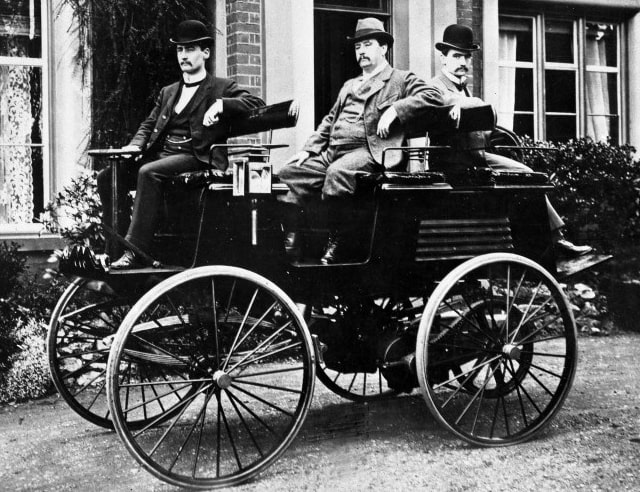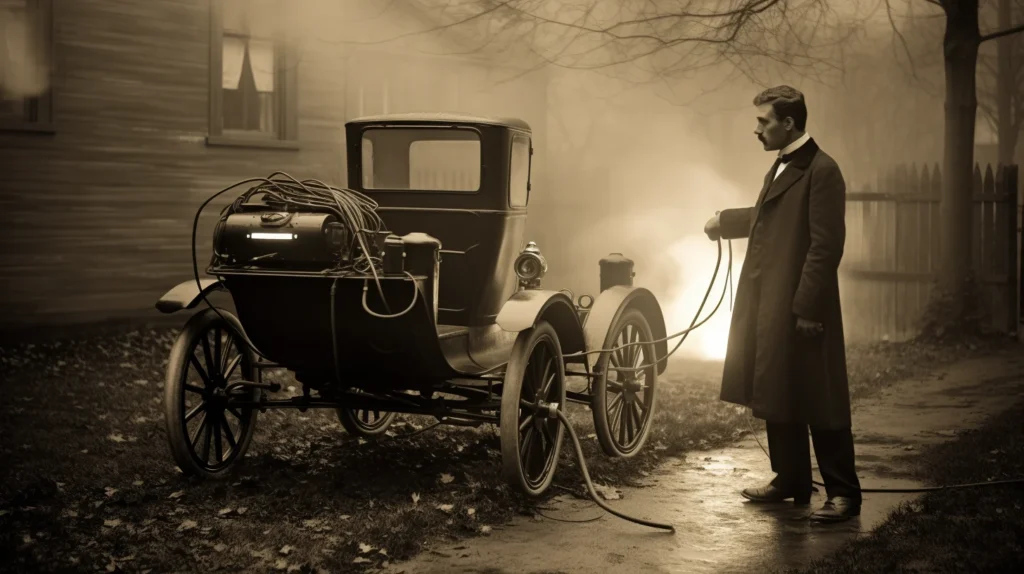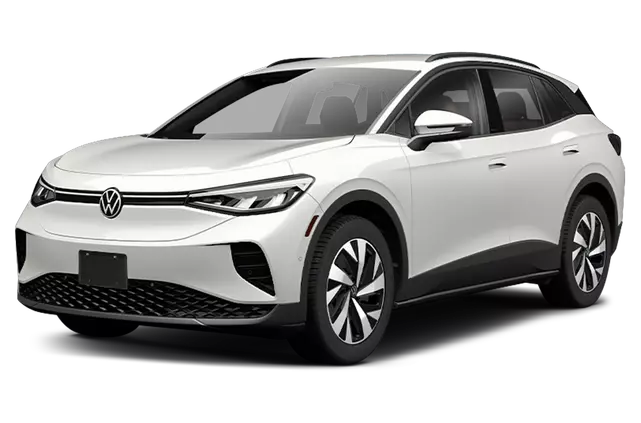Welcome to our deep dive into the mesmerizing history of automotive technology, where we journey back to appreciate the lesser-known pioneers of the industry – the first electric vehicles. Contrary to popular belief, electric vehicles aren’t just an invention of the 21st century; indeed their roots stretch back to the early 1800s. While they’ve been recently reinvented as eco-friendly alternatives to petrol and diesel-powered vehicles, the inception of these electric workhorses encompasses a rich, intriguing history that paints a vivid journey from innovation to oblivion, and then a resounding renaissance. Join us as we explore the early beginnings, the inventors, and the models that shaped the very first chapter of the electric vehicle’s narrative.
The birth of the electric vehicle
The invention of the electric vehicle revolutionized the way we commute. From the first electric carriage developed by Scottish inventor Robert Anderson in 1832 to the first mass-produced electric car introduced by Chrysler Corporation in 1967, the evolution of the electric vehicle has come a long way.
In 1834, American inventor Thomas Davenport made a significant contribution to the electric vehicle industry by creating the first practical electric vehicle powered by a non-rechargeable battery. This invention paved the way for further progress in the electric vehicle industry.
In 1881, French inventor Gustave Trouvé made a major breakthrough by inventing the first functioning electric motorcycle. This invention enabled the development of electric vehicles with more power and speed.

Image Source
In 1900, Austrian inventor Ferdinand Porsche made a major contribution to the electric vehicle industry by designing an electric car with a 48-volt motor, paving the way for more powerful and efficient electric vehicles.
In 1912, American inventor William Morrison developed the first electric car with a range of up to 60 miles. This invention enabled electric vehicles to travel further distances and made them more suitable for everyday commuting.
In 1967, Chrysler Corporation made history when they introduced the first mass-produced electric car, the Plymouth Satellite. This invention revolutionized the electric vehicle industry, making electric vehicles more accessible to the general public.
In 1996, Toyota released the first mass-produced electric vehicle, the RAV4 EV. This invention enabled electric vehicles to become a viable alternative to gasoline-powered vehicles.
Finally, in 2010, Nissan released the first all-electric vehicle, the LEAF. This invention triggered a major shift in the electric vehicle industry, making electric vehicles more popular than ever before.
The evolution of the electric vehicle has been a fascinating journey. From the first electric carriage to the first mass-produced electric car to the first all-electric vehicle, these inventions have revolutionized the way we commute and made electric vehicles more accessible to the general public.
The History of Electric Cars Includes Many Names You Know
In the late 19th century, the first electric vehicles were developed by two inventors—Robert Anderson of Scotland and Thomas Davenport of Vermont. The two inventors developed the first electric vehicles in order to meet the needs of the times. By 1903, the Baker Motor Vehicle Company was the largest producer of electric vehicles in the United States. In 1912, Henry Ford revolutionized the electric vehicle industry with the introduction of the Ford Model T, the first mass-produced electric car. General Motors followed up in 1916 with their own electric car, the Chevrolet Series C.
The electric vehicle industry experienced a resurgence in the early 1900s, as companies like Edison, Riker, and Detroit Electric started producing them. However, the industry was largely displaced by gasoline-powered cars in the 1920s. It wasn’t until the 1970s that the electric vehicle industry was re-energized, with the introduction of the GM EV1, the first modern electric car. The 2000s saw the electric car industry gain further traction, as more and more companies began to produce electric cars.
Today, electric vehicles are becoming increasingly popular, and the industry is continuing to expand. Companies like Tesla and Nissan are leading the way in electric vehicle technology, offering a variety of styles and features to meet the needs of consumers. The electric vehicle industry has come a long way since the first electric vehicles were produced in the 1880s, and it looks like it’s only going to continue to grow.
Tesla Makes Its Mark in Electric Car History
The electric vehicle market has been revolutionized by Tesla Motors, the leading manufacturer of electric cars. In 2008, the American company released the Tesla Roadster, the first car to be mass-produced with a range of over 200 miles per charge. This was a major milestone in the history of electric cars, and since then Tesla has continued to innovate and improve their vehicles.
In 2019, Tesla released the Model 3, its most affordable electric car to date. This vehicle has a range of up to 310 miles per charge and is packed with the latest advanced features, making it one of the most popular electric cars on the market. Tesla has also released the Model S and Model X, luxury sedans that are packed with special features and offer a range of up to 370 miles per charge.
The success of Tesla Motors can be seen in their sales figures. In 2019, the company sold over 500,000 cars, making them the undisputed leader in electric vehicle production. Tesla has made electric cars more accessible and affordable for consumers, and it looks like they are here to stay.
Final Thoughts
Electric vehicles have come a long way since the first ones were manufactured more than a century ago. While electric vehicles of today are more reliable, efficient, and offer greater range than their predecessors, there are still issues that need to be addressed. Despite the advancements, electric vehicles still face issues such as high price tags, infrastructure challenges, and limited range.
Thankfully, electric vehicles will continue to evolve and become more accessible as technology improves and more people become interested in them. It is important to remember that the first electric vehicles were a major step forward in the development of sustainable transportation, and we owe it to them for paving the way for the electric vehicles of today.
Electric vehicles were the first to offer an alternative to the traditional gas-powered car, and they have become an increasingly attractive option for those seeking a more sustainable and eco-friendly way to travel. While electric vehicles still face challenges such as limited range and high cost, they have come a long way since the first ones were manufactured and are no doubt here to stay.


